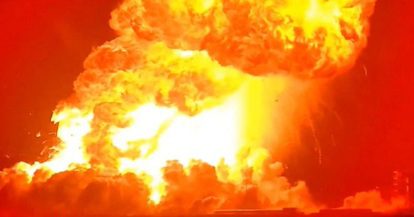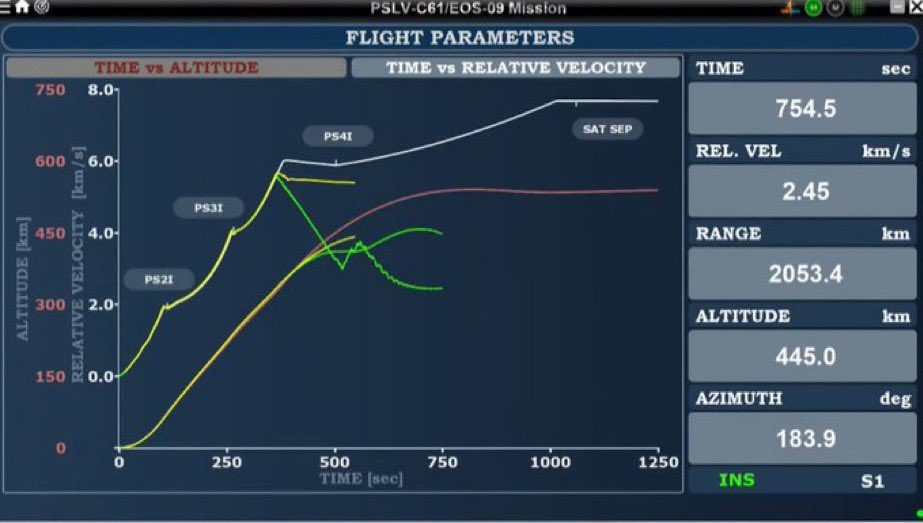On its 400th flight (399th orbital attempt) a Proton rocket injected the Russian Yamal 401 communications satellite into a transfer orbit on its way to a geostationary Earth orbit (GEO) position ready for the Breeze M upper stage to circularise it. The Proton M Breeze M launch took place from the Baikonour launch site near Tyuratam in Kazakhstan at 0016 GMT on 15 December 2014. However, Breeze M fourth firing did apparently work successfully putting the spacecraft into a “drift” GEO orbit from where it will be placed into its final orbital position over 90 degrees East.
At one point there had been concern that the final burn of Breeze M had been cut short similar to a previous Proton flight which delayed the final positioning of Express AM-6, but these reports were unsubstantiated and Thales Alenia Space, maker of the spacecraft’s commercial communications payload noted that the Yamal 401 spacecraft was in the right place. The communications payload consists of 36 Ku-band actual transponders (the bandwidth equivalent to 54 36MHz transponders) and 17 actual C-band transponders. The 2,976kg Yamal 401 satellite was built by Prime Contractor, ISS Reshetnev. for the Gazprom Space Systems using a version of its Express 2000 bus design.
The Yamal 401 satellite is insured for a value of €280 million (US$350 million) on the Russian insurance market which normally offloads part of this risk to the International space insurance market.
The next flight of the Proton launch vehicle is planned to take place on 28 December 2014 when the commercial communications satellite Astra 2G will be launched for the satellite communications firm SES. This launch is commercially provided by ILS – International Launch Services, the commercial marketing arm of Proton’s manufacturer, Khrunichev.
Comment by David Todd: While Proton’s recent bout of unreliability is not a selling point for ILS, it has received a sort of fillip via the devaluation of the Rouble. As the Rouble’s value has crash dived against the US dollar, so Proton launches could become that much more attractive given that Russian space salaries are paid in Roubles. This should result in Proton launch prices coming down.







